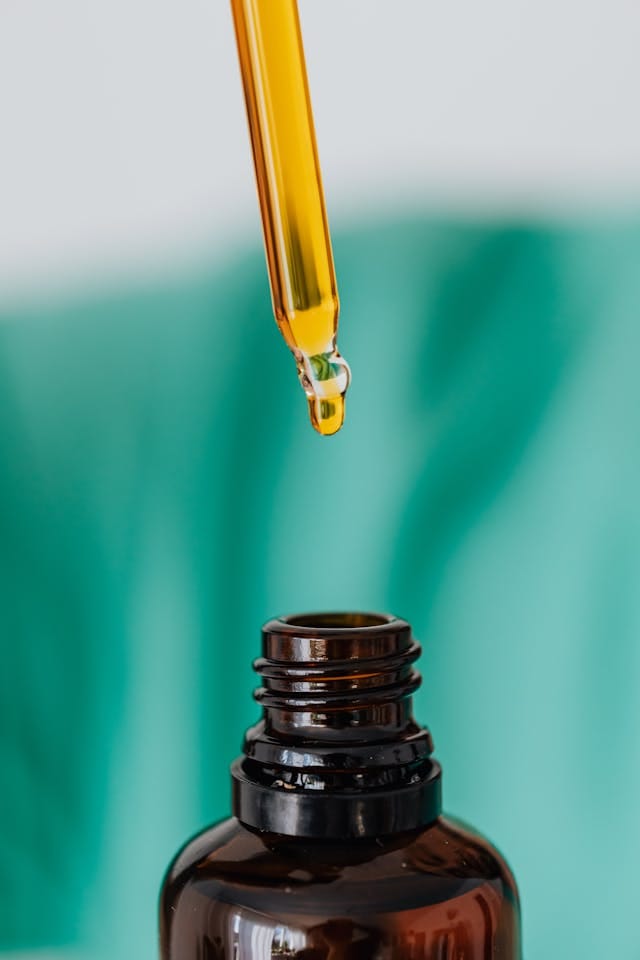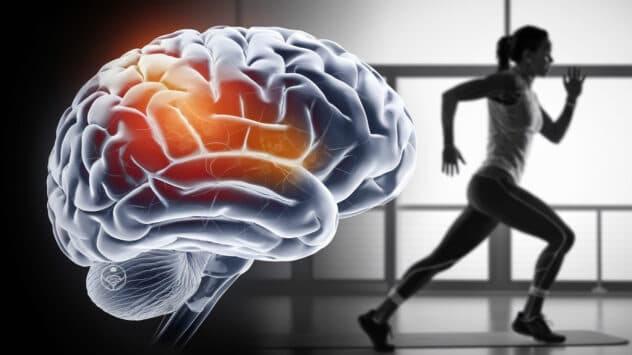Biohacking ADHD with seed oils like flaxseed, chia, and hempseed into your diet can significantly enhance focus, cognitive function, and emotional balance for those with ADHD. These oils, rich in essential fatty acids, support neurotransmitter regulation and brain health, making them a natural and effective tool for long-term ADHD management. By combining seed oils with other biohacks, such as supplements and mindfulness practices, individuals can optimize their routines and improve ADHD symptoms in a holistic, sustainable way.
How Seed Oils Support ADHD Management
Biohacking ADHD with seed oils is effective because they are rich in essential fatty acids like omega-3 and omega-6, which support brain health. Because these fatty acids are very important for brain function because they help keep neurotransmitters in balance, which is something that people with ADHD often have trouble with. In particular, flaxseed and fish oil are full of alpha-linolenic acid (ALA) and eicosapentaenoic acid (EPA). These acids are thought to help brain health and improve attention and restlessness.
Additionally, adding seed oils to your biohacking routine is a low-risk way to tackle ADHD symptoms, especially when combined with other cognitive-boosting methods such as diet optimization and mindfulness techniques.

What Makes Seed Oils Beneficial for ADHD?
Fatty acids, such as omega-3 and omega-6, are found in large amounts in seed oils. For instance, these acids are important for brain health and nerve activity. Omega-3 fatty acids, especially eicosapentaenoic acid (EPA) and docosahexaenoic acid (DHA), help neurons talk to each other, which makes it easier to focus, pay attention, and control your impulses, all of which are things that people with ADHD often have trouble with. They also lower inflammation, which is good for brain health in general and help you with Biohacking ADHD with Seed Oils.
Omega-3 and omega-6 must be balanced. Omega-6 helps the brain work, but too much of it can cause inflammation, which may make ADHD symptoms worse. This balance keeps the chemical systems that control mood, behavior, and attention in good shape.
These beneficial fatty acids are abundantly found in flaxseed, chia, and hempseed oils. Moreover, these oils act as natural supplements that may enhance brain function and aid in managing ADHD.
Sara’s Journey to Biohacking ADHD with Seed Oils
Sara, a marketing professional from London, always managed her ADHD through diet and exercise. However, she recently experienced brain fog and mood swings. Consequently, she decided to explore natural biohacking techniques focused on oils. Afterward, she discovered that flaxseed, chia, and hempseed oils could help her brain function better and control her ADHD symptoms.
After Sara began researching, she learned that flaxseed, chia, and hempseed oils could improve her brain function and help manage ADHD symptoms. Specifically, flaxseed oil, rich in omega-3 fatty acids, helped her enhance focus and clear her mind. Because she introduced Chia seed oil, which is full of vitamins, it gave her brain even more of a boost, and hempseed oil, which has the right amount of omega-3 and omega-6, helped her control her anger and anxiety.
So, Sara saw big changes in the following months after adding these oils to her diet on a daily basis. Her mood got better and she became more focused, which made it easier for her to do her work without any problems. It seems that seed oils were an important part of Sara’s practice for managing her ADHD because they were a natural, long-lasting way for her to improve her brain function.
Top Seed Oils for Biohacking ADHD
Sara was intrigued by the potential of seed oils to make a difference, and she dove into the world of biohacking with renewed enthusiasm. Here’s what she learned:
| Oil Type | Key Nutrients | ADHD Benefits | Sara’s Experience |
|---|---|---|---|
| Flaxseed Oil | Omega-3 (ALA), antioxidants | Supports neuron communication, reduces inflammation, improves focus and impulse control | Sara laughed, feeling a bit more confident in her biohacking abilities, and remarked that at least she got one thing right. Flaxseed oil, with its rich omega-3 content, is a great option for biohacking ADHD with seed oils. |
| Chia Seed Oil | Omega-3 (ALA), antioxidants, fiber | Enhances cognitive function, protects brain cells from oxidative stress, helps with mood regulation, boosts metabolism | Sara especially like the that the chia seed oil had metabolism boosting abilities which gave her more energy. |
| Hempseed Oil | Balanced Omega-3 & Omega-6, GLA | Reduces inflammation, calms nervousness, improves mood and focus, supports overall brain health | Sara particularly like the hempseed oil for it’s support of the overall brain health. |
| Pumpkin Seed Oil | Zinc, magnesium, Omega-6 | Boosts dopamine production for better focus, reduce anxiety, helps regulate neurotransmitters | Sara was thrilled to find that pumpkin seed oil is great for brain health. It’s loaded with zinc, crucial for dopamine production and, therefore, focus and concentration. |
Oils to Avoid in ADHD Management
| Soybean Oil | Omega-6 | Excess consumption can lead to inflammation; imbalance between Omega-3 and Omega-6 can worsen symptoms | Sara found out that this oil wasn’t her best choice for biohacking her ADHD because of the high Omega-6 |
| Corn Oil | Omega-6 | High in Omega-6; may contribute to inflammation and hinder ADHD management when overused | Sara used this oil a few times without having any effects but studies show that it can throw off the balance of the fatty acids. |
| Canola Oil | Omega-3 (ALA), Omega-6, monounsaturated fats | Supports brain health but choose cold-pressed to avoid trans fats; helps maintain a balanced omega ratio | Sara learned that highly processed varieties may include trans fats, which she wished to avoid. |
Practical Tips for Incorporating Seed Oils
- Balance Your Oils: Use a range of oils, such as flaxseed, chia, and hempseed, to maintain a balanced omega-3 and omega-6 fatty acid ratio.
- Use Cold-Pressed Oils: To maintain their nutritious worth, it’s best to choose cold-pressed, unrefined oils. In contrast, processed oils may lose nutritional value or even contain dangerous trans fats.
- Tailor the Oil to the Purpose:
- Due to their delicate nature, flaxseed and chia seed oils work well in salad dressings and smoothies.
- Hempseed oil is ideal for low-heat cooking or as a sauce topping.
- Start Small: Begin with 1-2 tablespoons of seed oil per day and modify based on your body’s response. Track progress in attention and mood over time.
- Read Labels: Additionally, pay attention to the source and type of oil you purchase. To avoid needless additives, choose high-quality, organic products wherever possible.
FAQs About Seed Oils and ADHD
What Seeds Are Good for ADHD?
Seeds like flaxseeds, chia seeds, and hemp seeds, which are high in omega-3 fatty acids, are especially beneficial for people with ADHD. Not only do they support brain function, but they also make it easier to concentrate and help regulate chemicals that control mood and attention.
Is Hemp Seed Oil Good for ADHD?
Yes, hemp seed oil is indeed beneficial for ADHD. Not only does it contain a balanced ratio of omega-3 and omega-6 fatty acids, but it also includes gamma-linolenic acid (GLA), which has calming effects and supports brain health, thereby making it especially useful for managing ADHD symptoms.
Conclusion: Unlocking ADHD Management with Seed Oils
Biohacking ADHD using seed oils is an easy and natural technique to improve brain health and manage symptoms. Therefore, incorporating nutrient-dense oils such as flaxseed, chia, and hempseed into your daily routine can help you focus, maintain mood stability, and improve cognitive performance. The trick is to balance omega-3 and omega-6 fatty acids, use high-quality oils, and incorporate them into a well-rounded diet.
To begin, start small, stay persistent, and gradually discover how these potent oils may naturally enhance your brain’s performance. After all, biohacking is ultimately about finding what works best for you, and seed oils might just be the solution you’ve been looking for.
***Please be advised that the information and tips provided are intended to support your wellness journey. However, we are not licensed healthcare professionals. We strongly recommend consulting with a qualified healthcare provider before making any changes to your health or wellness routine. Your health is a personal matter, and while we aim to offer guidance, we do not diagnose or provide medical treatment.***
References:
1. Schreyer S, Klein C, Pfeffer A, Rasińska J, Stahn L, Knuth K, Abuelnor B, Panzel AEC, Rex A, Koch S, Hemmati-Sadeghi S, Steiner B. Chia seeds as a potential cognitive booster in the APP23 Alzheimer’s disease model. Sci Rep. 2020 Oct 26;10(1):18215. doi: 10.1038/s41598-020-75209-z. PMID: 33106576; PMCID: PMC7589531.
2. Ogawa T, Sawane K, Ookoshi K, Kawashima R. Supplementation with Flaxseed Oil Rich in Alpha-Linolenic Acid Improves Verbal Fluency in Healthy Older Adults. Nutrients. 2023 Mar 21;15(6):1499. doi: 10.3390/nu15061499. PMID: 36986229; PMCID: PMC10056498.
3. El Tanbouly N, El Sayed AM, Ali ZY, Abdel Wahab S, El Gayed SH, Ezzat SM, El Senousy AS, Choucry MA, Abdel-Sattar E. Antidepressant-Like Effect of Selected Egyptian Cultivars of Flaxseed Oil on a Rodent Model of Postpartum Depression. Evid Based Complement Alternat Med. 2017;2017:6405789. doi: 10.1155/2017/6405789. Epub 2017 Nov 29. PMID: 29333185; PMCID: PMC5733178.
4. Dighriri IM, Alsubaie AM, Hakami FM, Hamithi DM, Alshekh MM, Khobrani FA, Dalak FE, Hakami AA, Alsueaadi EH, Alsaawi LS, Alshammari SF, Alqahtani AS, Alawi IA, Aljuaid AA, Tawhari MQ. Effects of Omega-3 Polyunsaturated Fatty Acids on Brain Functions: A Systematic Review. Cureus. 2022 Oct 9;14(10):e30091. doi: 10.7759/cureus.30091. PMID: 36381743; PMCID: PMC9641984.
5. Blondeau N, Lipsky RH, Bourourou M, Duncan MW, Gorelick PB, Marini AM. Alpha-linolenic acid: an omega-3 fatty acid with neuroprotective properties-ready for use in the stroke clinic? Biomed Res Int. 2015;2015:519830. doi: 10.1155/2015/519830. Epub 2015 Feb 19. PMID: 25789320; PMCID: PMC4350958.
6. Dyall SC. Long-chain omega-3 fatty acids and the brain: a review of the independent and shared effects of EPA, DPA and DHA. Front Aging Neurosci. 2015 Apr 21;7:52. doi: 10.3389/fnagi.2015.00052. PMID: 25954194; PMCID: PMC4404917.
7. Dias C, Nylandsted J. Plasma membrane integrity in health and disease: significance and therapeutic potential. Cell Discov. 2021 Jan 19;7(1):4. doi: 10.1038/s41421-020-00233-2. PMID: 33462191; PMCID: PMC7813858.
8. Simopoulos AP. Omega-3 fatty acids in inflammation and autoimmune diseases. J Am Coll Nutr. 2002 Dec;21(6):495-505. doi: 10.1080/07315724.2002.10719248. PMID: 12480795.
9. Richard C, Monk JM. Docosahexaenoic acid. Adv Nutr. 2024 Jan;15(1):100161. doi: 10.1016/j.advnut.2023.100161. Epub 2023 Dec 2. PMID: 38048908; PMCID: PMC10776907.
10. Richardson AJ, Burton JR, Sewell RP, Spreckelsen TF, Montgomery P. Docosahexaenoic acid for reading, cognition and behavior in children aged 7-9 years: a randomized, controlled trial (the DOLAB Study). PLoS One. 2012;7(9):e43909. doi: 10.1371/journal.pone.0043909. Epub 2012 Sep 6. PMID: 22970149; PMCID: PMC3435388.
11. Innes JK, Calder PC. Omega-6 fatty acids and inflammation. Prostaglandins Leukot Essent Fatty Acids. 2018 May;132:41-48. doi: 10.1016/j.plefa.2018.03.004. Epub 2018 Mar 22. PMID: 29610056.
12. Joshi K, Lad S, Kale M, Patwardhan B, Mahadik SP, Patni B, Chaudhary A, Bhave S, Pandit A. Supplementation with flax oil and vitamin C improves the outcome of Attention Deficit Hyperactivity Disorder (ADHD). Prostaglandins Leukot Essent Fatty Acids. 2006 Jan;74(1):17-21. doi: 10.1016/j.plefa.2005.10.001. Epub 2005 Nov 28. PMID: 16314082.
13. Kapoor R, Huang YS. Gamma linolenic acid: an antiinflammatory omega-6 fatty acid. Curr Pharm Biotechnol. 2006 Dec;7(6):531-4. doi: 10.2174/138920106779116874. PMID: 17168669.
14. Khalid W, Arshad MS, Aziz A, Rahim MA, Qaisrani TB, Afzal F, Ali A, Ranjha MMAN, Khalid MZ, Anjum FM. Chia seeds (Salvia hispanica L.): A therapeutic weapon in metabolic disorders. Food Sci Nutr. 2022 Dec 15;11(1):3-16. doi: 10.1002/fsn3.3035. PMID: 36655089; PMCID: PMC9834868.
15. Lee KH, Cha M, Lee BH. Neuroprotective Effect of Antioxidants in the Brain. Int J Mol Sci. 2020 Sep 28;21(19):7152. doi: 10.3390/ijms21197152. PMID: 32998277; PMCID: PMC7582347.
16. Gower-Winter SD, Levenson CW. Zinc in the central nervous system: From molecules to behavior. Biofactors. 2012 May-Jun;38(3):186-93. doi: 10.1002/biof.1012. Epub 2012 Mar 31. PMID: 22473811; PMCID: PMC3757551.
17. Lepping P, Huber M. Role of zinc in the pathogenesis of attention-deficit hyperactivity disorder: implications for research and treatment. CNS Drugs. 2010 Sep;24(9):721-8. doi: 10.2165/11537610-000000000-00000. PMID: 20806985.
18. Boyle NB, Lawton C, Dye L. The Effects of Magnesium Supplementation on Subjective Anxiety and Stress-A Systematic Review. Nutrients. 2017 Apr 26;9(5):429. doi: 10.3390/nu9050429. PMID: 28445426; PMCID: PMC5452159.
19. Simopoulos AP. The importance of the ratio of omega-6/omega-3 essential fatty acids. Biomed Pharmacother. 2002 Oct;56(8):365-79. doi: 10.1016/s0753-3322(02)00253-6. PMID: 12442909.





